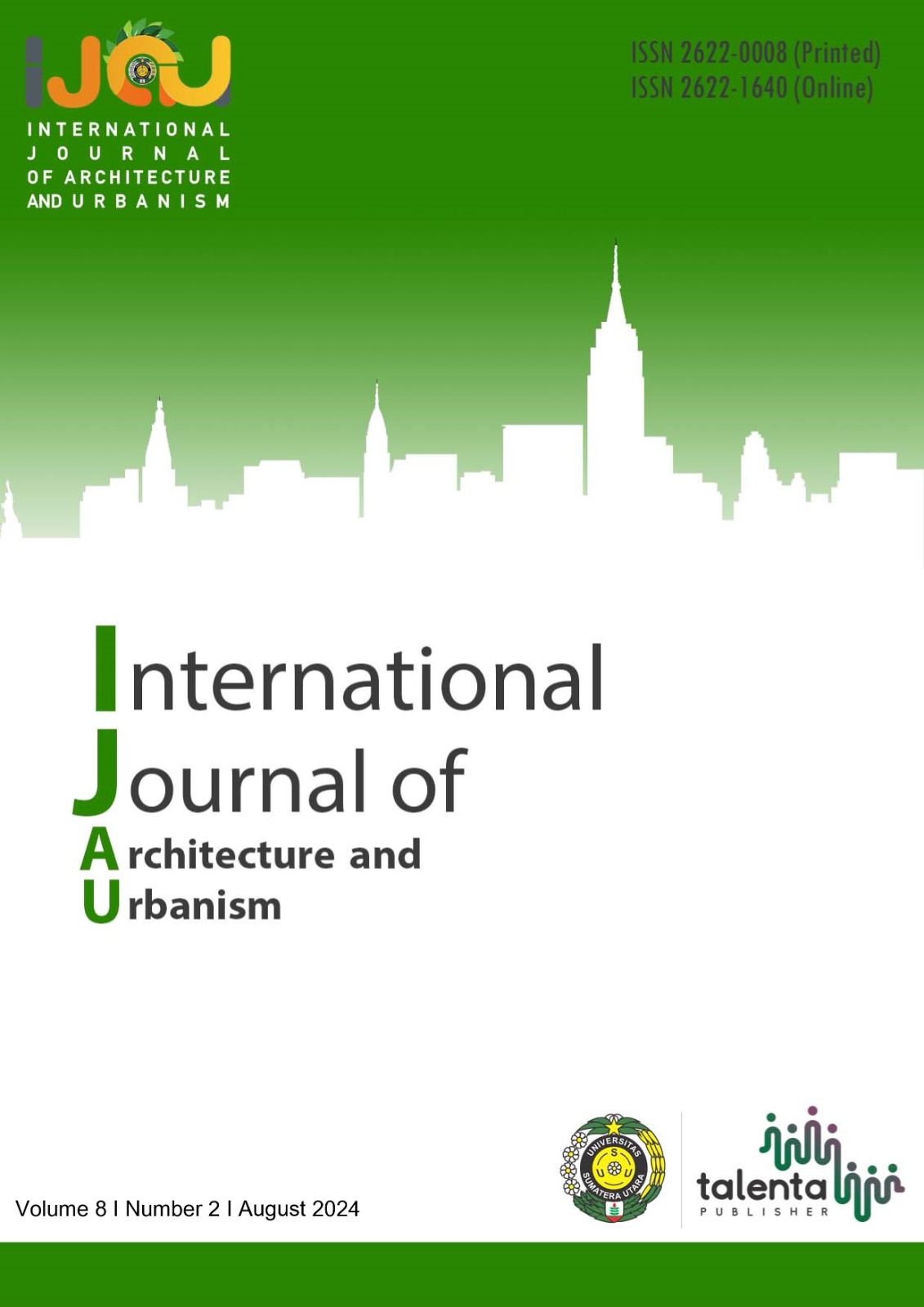Exploring Diverse Approaches To Adaptive Reuse In Function In Yogyakarta : Comparison Of Omah UGM And Restaurant Lumbung Mataram
DOI:
https://doi.org/10.32734/ijau.v8i2.15356Keywords:
Adaptive Reuse, architectural integrity, cultural integrity, Restaurant Lumbung Mataram, Museum Omah UGM.Abstract
Buildings play diverse roles dictated by human activities within them. Yet, when a building loses its effectiveness in serving its intended purpose, it can become a burden to the city and its community, or else when the owner sees an opportunity to generate income without making significant architectural changes. The concept of adaptive reuse emerges as a solution, aiming to revitalize these buildings. This approach considers factors like architectural and cultural integrity in making design decisions, influencing spatial and functional transformations. Our research seeks to explore the intricacies of adaptive reuse, focusing on how cultural and architectural integrity guide design choices and shape the evolution of space and function. The study delves into two previous Javanese houses turned into museum (Omah UGM) or restaurant (Restoran Lumbung Mataram). A qualitative research specifically was applied to this study with direct survey and interviews for data collection. By comparing data from these buildings, the research aims to highlight differences in decision-making processes for adaptive reuse and their impact on cultural and architectural integrity of the repurposed buildings.
Downloads
Downloads
Published
How to Cite
Issue
Section
License
Copyright (c) 2024 International Journal of Architecture and Urbanism

This work is licensed under a Creative Commons Attribution-ShareAlike 4.0 International License.


.png)










